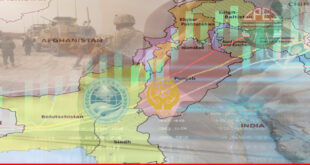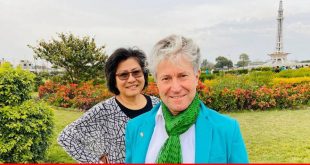Muslims give more money to charity than people of other religions. More than three in 10 Muslims, Catholics and Jews donated money during 2012, ICM Research found. Followers of Islam gave an average of $567 compared to Jewish givers who donated around $412; according to the survey of just over 4,000 people in the UK Christians gave considerably less. Protestants donated an average of $308, while Roman Catholics gave around $272, the poll found. Atheists averaged just $177.
Pakistan being a Muslim country is among the highest charity giving nations. According to the 2010 report Development Assistance Committee of the Organization for Economic Co-operation and Development Pakistan ranked 4 by the amount of money countries give as a percentage of their gross GNI (Gross National Income).
Pakistan gives 1 percent of its GNI as charity. Sweden, Norway and Luxembourg rank above Pakistan with the percentages of 1.12 percent, 1.06 percent and 1.01 percent respectively. The important thing to be noted is that no other Muslim country is present in this list of 24 countries. This shows that Pakistani nation is keen to help their brethren.
The total amount of donations Pakistanis make each year is estimated to run in billions of rupees. Islamabad-based NGO Pakistan Centre for Philanthropy assumes that private donations amounted to around Rs200 billion to Rs300 billion last year. These figures have been obtained by extrapolating from a report of the National Survey of Individual Giving undertaken by the Aga Khan Development Network in 1998-99.
South Asians are more generous than the Brazilians (0.3 percent of GDP) and the Chinese (0.1 percent of GDP), charity continues to lag in South Asia. 53 percent of Sri Lankans gave money to charity and 53 percent volunteered time, 51 percent of Pakistanis contributed money and 27 percent volunteered time. In India, 28 percent donated money and 18 percent volunteered time.
Charity contributions in India make up only 0.6 percent of GDP, significantly lagging behind 2.2 percent in the United States, 1.3 percent in the UK and 1.2 percent in Canada, according to data reported by Bain & Company, and Pakistan Center for Pakistanis contributed Rs140 billion (US$1.7 billion), nearly 1 percent of the nation’s gross domestic product of $170 billion in 2009.
Known working organization
Their donations help organizations like Edhi Foundation which operates non-profit ambulance service and Human Development Foundation which builds and operates schools and clinics for the poor.
In 2013, private charity in Pakistan stood at huge Rs200 billion; an amount larger than what the state was spending on social welfare, education and health, combined. In Pakistan, philanthropy as ratio of GDP is one of the highest in the world.
In Pakistan the great job the Edhi Foundation is doing in different spheres – from running cancer hospices and ambulance services (Edhi Foundation has the largest fleet in the world, as the Guinness Book of Records mentions) to providing shelter to battered women and education to poor children. Wherever there is a calamity, Edhi rushes to the site to provide help. If an unwanted child is left in one of Edhi’s centres, Mr Edhi (and his wife, Bilqees) is there to take the infant under his protective wing.
The Shaukat Khanum Memorial Cancer Hospital in Lahore is doing a remarkable job too. Most of its patients are poor and unable to pay for the long drawn and expensive treatment provided by the hospital. The model is being replicated in Peshawar.
A state-of-the-art health institution, the SIUT (Sindh Institute of Urology and Transplantation) and the Indus Hospital are both providing excellent services in the health sector.
LRBT has 16 hospitals all over Pakistan, two of which – one in Karachi and the other in Lahore – are the best equipped ophthalmic institutions in the country. There are also 41 community centres where ophthalmic technicians examine patients and decide whether they can be treated as outpatients or are in need of surgery. As many as one-third of all OPD patients with problems of vision in the country are treated in one of the LRBT institutions and one-fourth of ophthalmic surgeries are done in the 16 eye hospitals run by the not-for-profit organization.
Aman Foundation is doing the excellent work. It provides nutritious food to students at lunch time at 10 schools in Khuda ki basti. Patients admitted to the Indus Hospital also get free food, which is cooked in the clean and spacious kitchen run by the Aman Foundation staff. The non-profit trust has plans to work in other social sectors too.
More awareness needed
The government is starting an awareness campaign in the holy month of Ramazan to create awareness among the people not to give charity to organization that might use the donations for terrorism, extremism and militancy.
According to official sources, the objective is that the public should thoroughly check before giving donations to those organizations that deserve charity, and not to those that are misusing the aid for their own purposes. The campaign will focus on organizations that might be sponsoring home-grown extremism and terrorism. The media campaign will advocate public vigilance, raise awareness on safer charity practices and highlight plight of the victims of terrorism by influencing public to give their donations to reputed charities.
There is sporadic and disorganized nature of charity giving. In Pakistan most of the private charity ends up in minute distributions. Therefore, any large-scale social or economic effect withers away. Large sections of charity-giving people take the money and disburse it in little chunks to the poor rather than donating it to an organized charity organization where the money can be spent on a focused objective.
The desired effects of charity can only be achieved if the process is streamlined and a concerted effort is made at targeting specific social evils or economic ills of the society.
There is much that can be done in Pakistan by the private charity; from public toilets for males and females, to donating to healthcare and educational institutes; from strengthening institutes of micro-loans to funding institutes that focus on building a counter-narrative to the extremist one.
The important aspect of private charity in Pakistan is the way in which it is disposed of. Large section of charity-giving people will certainly take the money and disburse it in little chunks to the poor rather than donating it to an organized charity organization where the money can be spent on a focused objective.
 PAGE Blog Business Weekly Magazine
PAGE Blog Business Weekly Magazine

